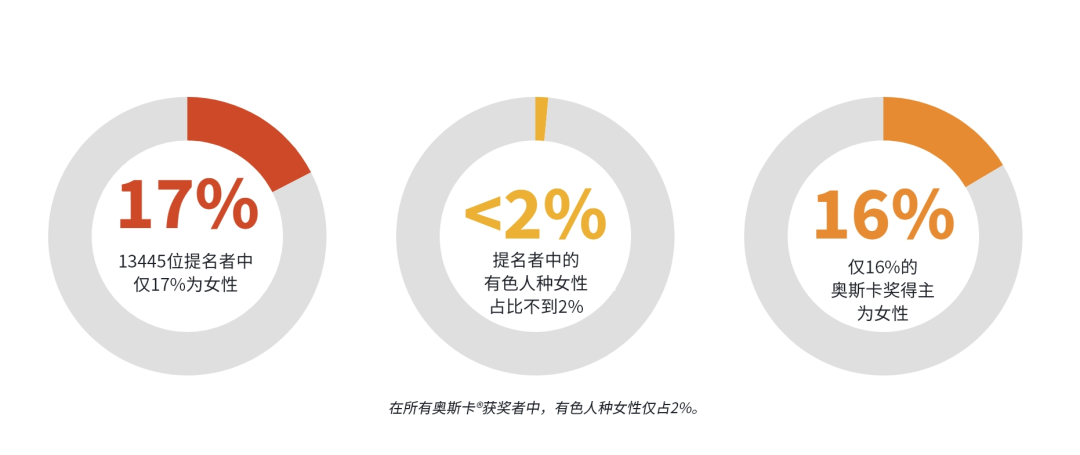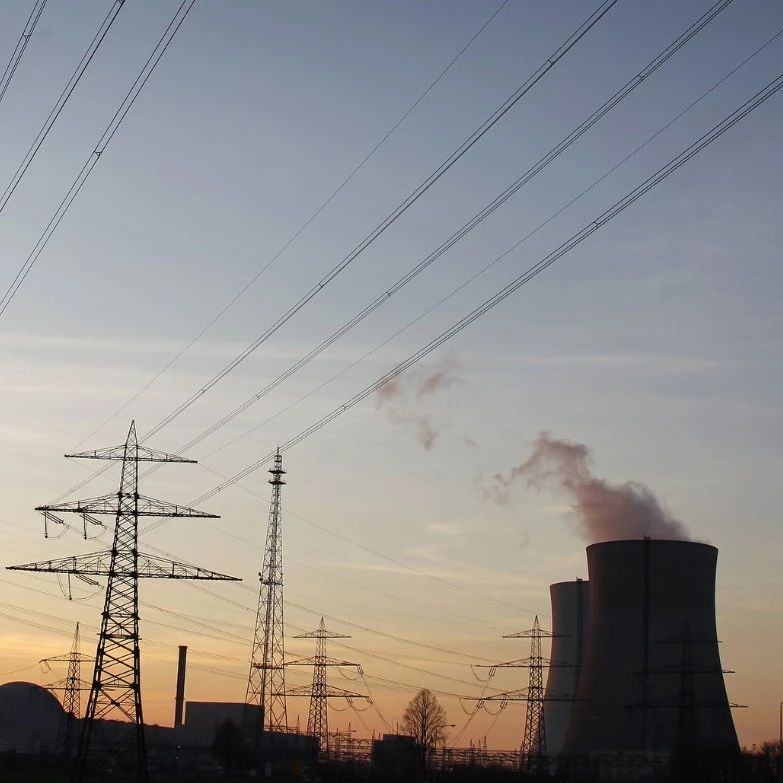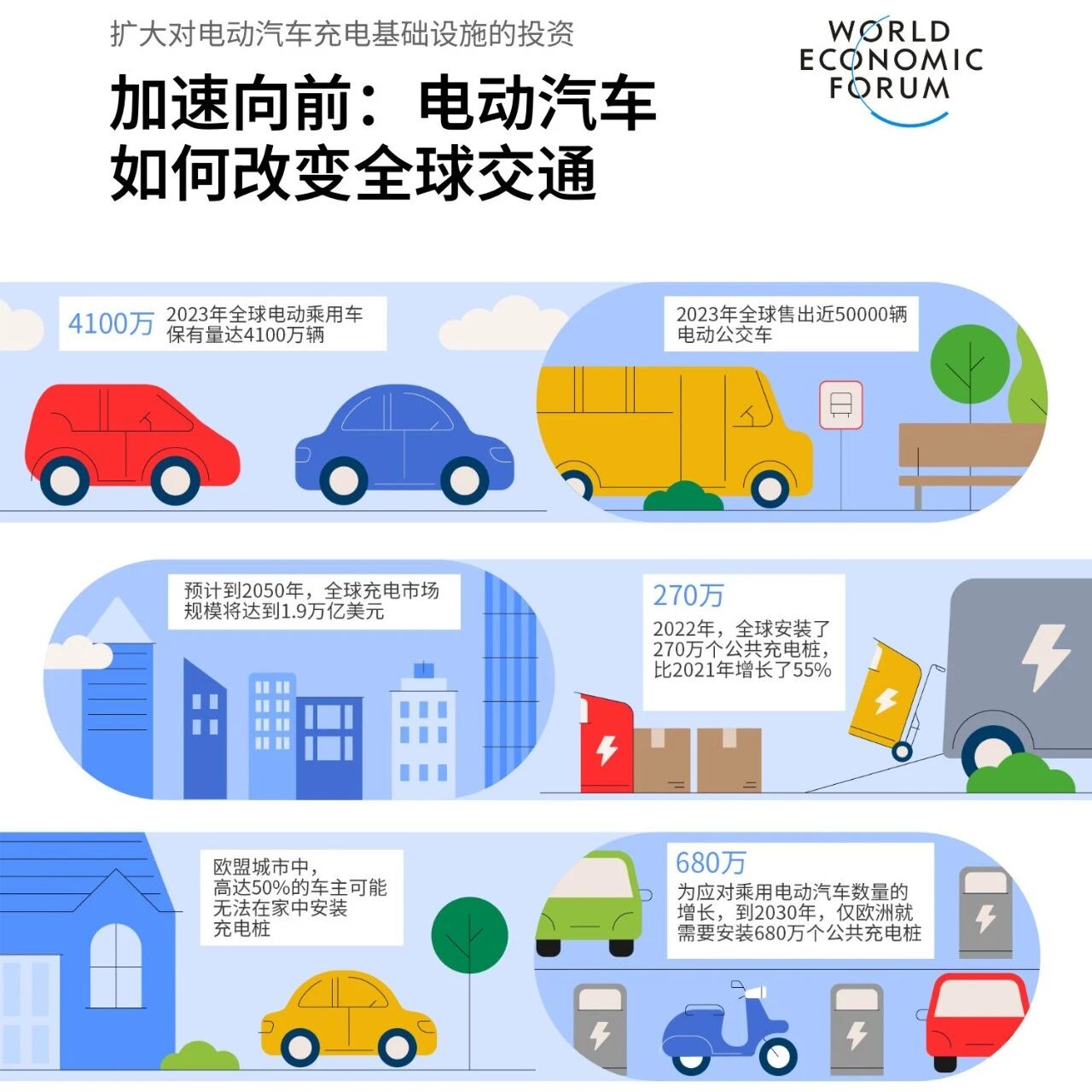Representation matters in every industry.
Image source:Unsplash/Jon Tyson
Kate Whiting
Senior Writer for the Forum Agenda
A new survey reveals that since 1929, only 17% of Oscar nominees have been women, and fewer than 2% of nominees have been women of color.
The gender inequality evident in the Academy Awards (the Oscars, presented by the Academy of Motion Picture Arts and Sciences) mirrors broader trends of gender disparity not only within the film industry but across society as a whole.
According to the World Economic Forum's "Global Gender Gap Report 2023," it will take another 131 years for the world to achieve full gender equality.
"Barbie" was the highest-grossing film worldwide in 2023, raking in a staggering $1.4 billion at the global box office and earning eight Oscar nominations.At its core, this is a feminist film that gently critiques the patriarchal system. The movie conveys its central message—a critique of society’s often contradictory and unattainable expectations for women—through a powerful monologue delivered by actress America Ferrera.However, at the Oscars ceremony held on Sunday, March 10, the film missed out on competing for two major awards: Margot Robbie, who played Barbie, was not nominated for Best Actress, and Greta Gerwig, who brought the film to life on screen, was overlooked for the Best Director category.This year, only one of the five nominees for Best Director is a woman. In fact, according to an analysis of Oscar inclusivity conducted by the USC Annenberg School of Journalism and Communication, in the past 95 years, there’s only been one year—2021—when two women were nominated for the award.Since 1929, out of 476 nominees for Best Director, only 8 have been women—accounting for less than 2% of the total—and half of these nominations have come after 2010.In addition to the Best Director award, among the 13,445 Oscar nominees since 1929, only 17% have been women, while women of color make up less than 2%.Only in 2021 were two women nominated for the Academy Award for Best Director.
Image source:University of Southern California Annenberg School of Communication
Gender Equality in the Film IndustryResearch shows that gender inequality at the Oscars mirrors broader trends of gender disparity not only in the film industry but across society as a whole.Among the 100 highest-grossing films of 2023, only 30 featured female leads or co-leads—down from 44 in 2022, matching the number seen in 2010.Dr. Stacy L. Smith, who leads the research, said: "These numbers don’t just measure how often women take on leading roles—they also reflect the career opportunities available to women in the film industry.""This year, we’ve observed a sharp decline in these opportunities. Even after examining films that were delayed until 2024 due to strikes, we still can’t explain why the number of female leads and co-leads plummeted in 2023—we can only conclude that this represents a failure within the industry."Another study by the gender equality coalition ReFrame highlights that there has been "no significant" improvement in gender balance within the film industry.The ReFrame "Stamp" Award specifically honors films that "cast women or other underrepresented gender identities/expressions—including transgender, non-binary, or non-conventional gender individuals—in at least 50% of key roles."Over the past four years, only 29% of the 100 most popular films (with just 28% in one year) have earned this certification.Out of the 10 films nominated for Best Picture at the Oscars, only 3 met the gender-balanced criteria: "Barbie," "Anatomy of a Fall," and "Past Lives."The third study examined the film industries in the UK, Canada, and Germany. The research report, "Reimagining the Industry Landscape: A Comparative Assessment of Gender Equality Policies in the International Film Sector," highlights that, at the current rate of progress, gender parity—defined as 50% representation of men in key creative roles—will not be achieved in Canada until 2215, in the UK by 2085, and in Germany by 2041.The research report states: "There is still much work to be done to ensure fair representation of women and sexual minorities in key creative roles. Policies...must adopt a cross-sectoral, sustainable approach that considers both short-term and long-term impacts."According to the World Economic Forum's "Global Gender Gap Report 2023," it will take another 131 years for the world to achieve full gender equality.Representation matters in every industry, but the roles women play on screen can either shape societal perceptions—or reinforce harmful gender stereotypes—potentially hindering progress toward gender equality.The above content solely represents the author's personal views.This article is translated from the World Economic Forum's Agenda blog; the Chinese version is for reference only.Feel free to share this on WeChat Moments; please leave a comment below the post if you’d like to republish.
Translated by: Sun Qian | Edited by: Wang Can
The World Economic Forum is an independent and neutral platform dedicated to bringing together diverse perspectives to discuss critical global, regional, and industry-specific issues.
Follow us on Weibo, WeChat Video Accounts, Douyin, and Xiaohongshu!
"World Economic Forum"






